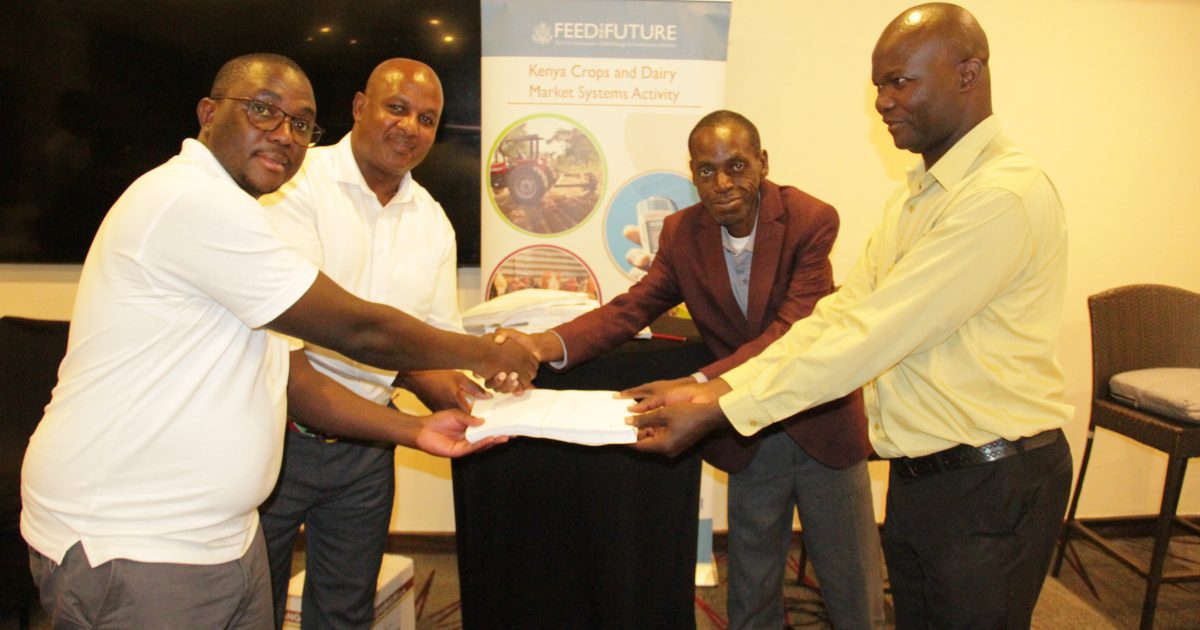Soil acidity has been identified as a threat to food security in Nyanza and Western regions.
A soil testing campaign carried out by the Kenya Crops and Dairy Markets Systems (KCDMS) in collaboration with OCP Africa and county governments, established that over 35% of arable land in the area was acidic.
The campaign carried out in Kisumu, Siaya, Migori, Homa Bay, Kisii, Vihiga, Bungoma, Kakamega and Busia counties in August revealed significant deficiencies in key nutrients and micro-nutrients including phosphorous, potassium, Sulphur, copper and zinc.
KCDMS Technical Director Seth Yake said the acidity has greatly hampered production in the two regions posing a threat to food security.
“We have seen declining productivity in this region over time. Statistics show that farmers who used to harvest 30, 000 bags of maize per acre are now managing just about four bags,” he said.
He said acidity decreases the availability of plant nutrients, such as phosphorus and molybdenum and increases the availability of some elements to toxic levels affecting crops survival.The Technical Director attributed the acidity to inappropriate use of fertilisers, continuous cropping which has resulted into nutrient leeching and loss of organic carbon.
Speaking during the soil tests results validation meeting in Kisumu, Yake called for concerted efforts to train small holder farmers in the area on good agricultural practices, besides supporting them with soil amendment remedies to boost productivity.
Liming, he said, has been identified as an effective correctional practice calling on county governments and other stakeholders to support farmers in the area to restore soil health and boost production.
“We have demonstrated that through interventions like liming and use of the right fertilizers farmers can increase yields up to 25 bags per acre,” he said.
OCP Africa Chief Agronomist Peter Bwire said the 2, 359 soil samples taken from the eight counties show that some counties had over 50% of arable land acidic.
He called for the adoption of good farming practices to help replenish the soil PH levels.
Kisii County Executive Committee Member (CECM) in charge of Agriculture Elijah Obwori called for the enactment of soil improvement policies in county governments in the area.
This, he said, was urgent to ensure that the devolved units allocate funds to reverse the negative effects of soil acidity in the region.
“The policies once passed by the county assemblies will help us to scale up soil testing and research. We will also be able to map our soils and advice farmers on the correct remedial measures to scale up productivity,” he said.
Agro-dealer, Nehemiah Odongo rooted for continuous soil testing in the region to enable farmers take the right steps to correct the soils.
With the cost of testing averaging Sh1, 500 per sample, he said most farmers do not see the need of the exercise, dealing a blow to efforts to restore soil health in the area.
“With the tough economic times farmers are finding it difficult to see this as an avenue of increasing productivity. We are however encouraging them to embrace soil health. If the soil is healthy, the crops and the farmers will be healthy too,” he said.
Dr. Anthony Esilaba, a soil research consultant said liming was necessary to restore soil in the area and boost productivity.
He called for the establishment of a policy to develop the lime value chain to ensure that as many farmers as possible benefit.
By Chris Mahandara




